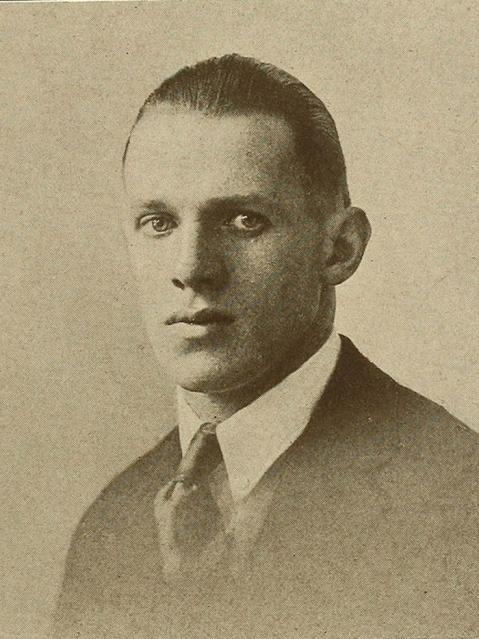Ellis, Clayton Carey
- Who
- WWI driver
- When
- WWI
- Where
- France
- Education
- Mass. Normal Art School
Public domain: Memorial Volume of the American Field Service in France, 1921.
Born July 13, 1895, in Somerville, Massachusetts. Son of Charles L. and Dora Smith Ellis. Educated Somerville schools and Massachusetts Normal Arts School, Class of 1919. Taught at Peabody Settlement House, Boston. Joined the American Field Service, May 5, 1917; attached Section Twenty-eight. Enlisted in U. S. A. Ambulance Service, September 17, 1917. Killed by shell in action at Reims, August 7, 1918. Buried Seringes-et-Nesles, Aisne. Body transferred to Longley Cemetery, Sidney, Maine.
LONG before Clayton Carey Ellis made his ultimate sacrifice in the service of France he had earned, by the happy combining of likable personality and abilities well above the average, the esteem and affection of his French and American comrades in the war just as earlier he had of his schoolmates. "I should not know how to say which was the greater --- the admiration or the love I felt for him" said the aumonier of the division in writing to Clayton's parents, and went on "c'était, sans exagération, l'un des meilleurs jeunes gens que dans ma carrière de prêtre, il m'a été donné d'approcher, et comme le tout était recouvert de la plus sincère modestie, j'affirme, sans crainte, que le très cher Clayton représentait à mes yeux l'idéal du jeune homme." "His sincerity and gentleness were as much a part of him as his sense of duty," wrote Frederic Colie, a fellow driver in Clayton's section. A memorial notice published by the art school he had attended spoke of "his power for leadership," saying that "Clayton's influence within the school was strong, wholesome, and fine --- all regarded him as a friend." At high school, too, he won exceptional popularity, being class president for four years. In addition he was a splendid athlete, and had a very fine tenor voice. He possessed also marked aptitude for painting.
Clayton was studying art in Boston and doing settlement work in addition when America declared war. He seized his opportunity and sailed for France in May with a Dartmouth unit of the Field Service which went to the front as Section Twenty-Eight. Of him a brancardier priest, le pasteur Caldesaignes, said "None of those who had been in close contact with him could otherwise than become attached to him."
He was quiet and practical, a conscientious, enthusiastic worker, "volontaire pour toutes les missions périlleuses" says his army citation for the Croix de Guerre. In describing his reactions Clayton himself found that "like everything I have ever done I have entered this work with no greater thrills than those experienced on the hay press or the football field --- just a matter of business on hand to be done according to my best judgment." To his former schoolmates his letters were "constant, cheerful, and optimistic" and his work abroad was done "in the same buoyant spirit known and remembered in studios and classrooms." With many interests and broad sympathies Clayton was very sensitive to the suffering of others. "Nothing disheartens me," he said, "as when I've done all in my power to give my man an easy trip, feeling his pains at every bump, suffering with him during long waits on the road, and then to see him die as he is taken from the car." He had hoped, upon enlisting in the ambulance service for the duration of the war, that he might secure a non-commissioned officer's rank but he was not one of those first selected and he remarked philosophically "so I must play the good soldier until my turn comes --- if it ever does." His sense of humor and good temper lifted him over many difficulties, much as he says "my old voiture has carried me safely through quite a bit. Never failed me in time of need --- in fact we are two of a kind: built not for speed but for service."
He did not fail or falter once in his service. On the night of August 6th, after midnight, he was carrying wounded through the shadowy, blasted streets of Reims when a shell struck close and a splinter pierced Clayton's head, killing him instantly. In the words of his schoolmates, "he died as he had lived bravely doing his duty as he saw it, and in the cause of his fellowmen." "This is warfare" a comrade wrote "a man lives from minute to minute," and to the end Clayton Ellis lived his every minute well.
- Tribute from Memorial Volume of the American Field Service, 1921
WWI File
- Months of service
- 4, 1917
- Section(s)
- S.S.U. 28
- Home at time of enlistment
- Boston, Mass., USA
- Subsequent Service
- U.S.A.A.S.

